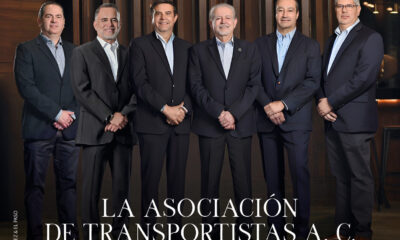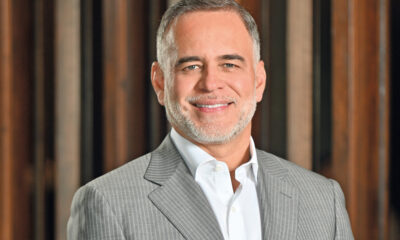Finanzas
Las fugas más fuertes en los gastos de verano
Publicado
2 años antesel
Por
Staff
La poca previsión y las compras de último minuto hacen que nuestro presupuesto se eleve por mucho; aprende a cómo cuidarlo
Por: Cambio de Cultura
“Los proyectos del diligente ciertamente son ventaja, Pero todo el que se apresura, ciertamente llega a la pobreza”
Proverbios 21:5
Llega la época de las vacaciones y para muchas personas, es uno de los tiempos que les es más difícil lograr que su presupuesto no se salga de control. La clave para lograrlo es aprender y decidir no gastar por impulso. Gastar por impulso es una receta para el desastre económico.
De acuerdo con la Encuesta de Evaluación de Hábitos de Viaje, los mexicanos planean sus vacaciones con 15 días de anticipación, tiempo relativamente corto en relación con el dinero que podríamos ir ahorrando si extendiéramos nuestro horizonte de planeación y ahorro. La poca previsión para escoger el destino al que se irá de viaje, la reservación del hotel y los boletos de avión o autobús que se compran de último minuto hace que nuestro presupuesto –si es que lo tenemos– se eleve por mucho. Si en la vida diaria hay gastos extraordinarios que se presentan, ¡en verano los gastos fuga se disparan!
Gastos que debemos cuidar para evitar fugas económicas
• Alojamiento: Los buscadores por Internet que comparan precios de varios hoteles, vuelos o paquetes vacacionales todo incluido son una excelente herramienta para ayudarte a tener un estimado del precio total de tu viaje.
• Transporte: Si decides viajar en autobús o avión, el tiempo es tu mejor aliado. Entre más anticipada hagas tu compra, más barato saldrá. Por ejemplo, ciertas líneas te otorgan hasta un 50 por ciento de descuento si compras los boletos con 15 días de anticipación.
• Entretenimiento: Investigar previamente el lugar a donde irás a vacacionar te servirá para conocer no sólo un poco más de la historia de este, sino que te dará un panorama de cómo organizar la agenda diaria de acuerdo a los lugares cercanos.
• Souvenirs: Selecciona a cuántas personas de la familia y amigos quieres llevarles un “recuerdo”, asigna un monto máximo y respeta tu lista. Busca los mercados de artesanías con buenos precios.
La receta es la planeación
Las vacaciones son un gasto que debemos planear con anticipación y presupuestar. Si no definimos cuánto podemos gastar en las vacaciones, la experiencia se convertirá en un barril sin fondo, dado que habrá muchas tentaciones para gastar por impulso.
Otro punto importante de planear las vacaciones con anticipación es que podremos saber cuánto dinero separar cada mes para este fin, o incluso que gastos deberíamos evitar para poder tener más recursos que se pueden aplicar a las vacaciones.
“Cuida los centavos, que los pesos se cuidan solos”.
Lo más importante
Recuerda que lo más importante al momento de salir de vacaciones con la familia no son los lugares que visitan, las actividades que realiza o los juegos que se juegan. Lo más importante es poder disfrutar de la compañía de tus seres queridos y restaurarnos física, emocional y espiritualmente.
Comienza a disfrutar tus vacaciones desde el momento en que comienzan tus vacaciones. Muchas veces perdemos la capacidad de disfrutarnos, por estar desesperados por llegar al destino escogido.
“He visto que no hay nada mejor para el hombre que gozarse en sus obras, porque ésa es su suerte. Porque ¿quién le hará ver lo que ha de suceder después de él?”
Eclesiastés 3:22
The strongest leaks in summer spending
Poor foresight and last-minute shopping send our budget skyrocketing; learn how to take care of it
By: Cambio de Cultura
“The projects of the diligent certainly are advantageous, But everyone who hastens certainly comes to poverty.”
Proverbs 21:5
The vacation season is upon us, and for many people, it is one of the most challenging times to keep their budgets under control. The key to doing so is to learn and decide not to spend on impulse. Impulse spending is a recipe for economic disaster.
According to the Travel Habits Evaluation Survey, Mexicans plan their vacations 15 days in advance, a relatively short amount of money we could save if we extended our planning and keeping horizon. The need for foresight in choosing the destination, hotel reservations and last-minute airline or bus tickets makes our budget rise by a lot if we have one. If, in daily life, extraordinary expenses arise, in the summer, the costs escape skyrocketing!
Expenses that we must take care of to avoid financial leakage
– Lodging: Internet search engines that compare prices of various hotels, flights or all-inclusive vacation packages are an excellent tool to help you estimate your trip’s total cost.
– Transportation: If you decide to travel by bus or plane, time is your best ally. The more in advance, you make your purchase, the cheaper it will be. For example, certain airlines give you up to a 50 percent discount if you buy your tickets 15 days in advance.
– Entertainment: Previously researching where you will go on vacation will help you know a little more about its history and give you an overview of how to organize your daily agenda according to nearby places.
– Souvenirs: Select how many family and friends you want to take a “souvenir,” assign a maximum amount and respect your list. Look for craft markets with reasonable prices.
The key is planning
Vacations are an expense that we must plan and budget for. If we do not define how much we can spend on vacation, the experience will become a bottomless barrel since there will be many temptations to spend on impulse.
Another critical point of planning vacations is that we will know how much money to set aside each month for this purpose or what expenses we should avoid having more resources that can be applied to vacations.
“Take care of the pennies; the pesos take care of themselves.”
The most important thing
Remember that the most important thing when going on vacation with the family is not the places you visit, the activities you do or the games you play. The most important thing is to enjoy the company of your loved ones and restore yourself physically, emotionally and spiritually.
Start enjoying your vacation from the moment your holiday begins. We often lose the ability to enjoy ourselves because we are desperate to reach our chosen destination.
“I have seen that there is nothing better for a man than to rejoice in his works, for that is his lot. For who shall make him see what shall befall him after him?”
Ecclesiastes 3:22

¿Alguna vez has sentido que el dinero se te escurre de las manos como arena? En esta vida, entre los deseos y las tentaciones del consumo, a veces parece imposible mantener nuestras finanzas en orden. Pero queremos compartirte una verdad poderosa que nos puede liberar y bendecir: el arte de ahorrar.
La palabra “ahorro” tiene una historia muy interesante. Viene del árabe “hurr”, que significa “libre”. Originalmente, “ahorrar” significaba liberar a un esclavo o a alguien de una carga. ¡Qué revelador! Cuando ahorramos hoy, no solo estamos guardando dinero, sino que nos estamos liberando de las ataduras financieras que nos impiden alcanzar nuestras metas personales.
Ahorrar no es ser tacaño, ¡para nada! Es desarrollar una actitud sabia y de buena administración. La Biblia nos lo enseña claramente: “El sabio ahorra para el futuro, pero el necio derrocha cuanto obtiene” (Proverbios 21:20)7. ¡Salomón sabía de lo que hablaba!
5 errores comunes que nos impiden ahorrar:
A menudo, sin darnos cuenta, cometemos ciertos errores que sabotean nuestros esfuerzos por ahorrar. ¡Identifiquémoslos para poder superarlos!
- No distinguir entre necesidades y deseos: Tendemos a gastar por impulso en lo que queremos, sin preguntarnos si realmente lo necesitamos. Una necesidad es un requisito legítimo para nuestro bienestar o el de nuestra familia, mientras que un deseo es algo que queremos sin respetar las consecuencias. Enfocarse en las necesidades básicas primero es fundamental.
- No tener un plan de gastos: Muchas veces, el dinero simplemente “desaparece” porque no sabemos en qué lo gastamos. No crear un presupuesto familiar y evaluar cada gasto es un error que nos impide ver dónde se va el dinero y dónde podemos ajustarnos.
- Comprar impulsivamente sin preguntar: ¿Cuántas veces hemos comprado algo porque nos gustó en el momento, sin considerar si lo necesitamos, si podemos pagarlo de contado, por qué lo queremos o cuándo podemos comprarlo? Esta falta de reflexión antes de gastar nos lleva a mucha frustración.
- No llevar registros confiables: Si no guardamos las notas de compra del mes o no registramos cada transacción, es imposible saber adónde se va nuestro dinero. Sin estos registros, no podemos identificar gastos innecesarios ni hacer los recortes necesarios.
- Vivir al día y no planificar para el futuro: Este es un error grave. Si no tenemos una reserva de dinero para gastos no planeados o no ahorramos para el mañana, nos volvemos vulnerables a las dificultades financieras. El sabio ahorra y construye para el futuro, mientras que el necio derrocha cuanto obtiene.
En un mundo donde la publicidad nos grita “¡quiero, quiero, quiero!” y el crédito fácil nos envuelve en planes de pago casi imposibles, el ahorro es un acto de rebeldía y sabiduría. Nos ayuda a evitar ser despilfarradores y a vivir dentro de nuestras posibilidades. Nuestros hijos y nietos nos lo agradecerán por ser un ejemplo de vida.
Recordemos el sabio consejo de M.F. Tupper: “Economía, la fábrica del pobre; el derroche, la trampa del rico”. Ya sea que tengamos mucho o poco, la sabiduría financiera es un principio que nos acerca a la libertad y a una vida más plena.
Saving to Flourish: 5 Common Mistakes
Do you feel like money is slipping away without you even realizing it? In a world filled with desires and consumer impulses, learning to save is not only necessary, but liberating.
Have you ever felt like money is slipping through your fingers like sand? In this life, between the desires and temptations of spending, it sometimes seems impossible to keep our finances in order. But we want to share with you a powerful truth that can free and bless us: the art of saving .
The word “thrift” has a very interesting history. It comes from the Arabic ” hurr, ” meaning “free“. Originally, “to save” meant to free a slave or someone from a burden. How revealing! When we save today, we’re not just putting money aside, we’re freeing ourselves from the financial shackles that prevent us from achieving our personal goals.
Saving isn’t about being stingy—not at all! It’s about developing a wise and good stewardship attitude. The Bible teaches us this clearly: “A wise man lays up money for the future, but a fool squanders everything he gets” (Proverbs 21:20). Solomon knew what he was talking about!
5 common mistakes that prevent us from saving:
We often make certain mistakes without realizing it that sabotage our savings efforts. Let’s identify them so we can overcome them!
- Failing to distinguish between needs and wants: We tend to spend impulsively on what we want, without asking ourselves if we really need it. A need is a legitimate requirement for our well-being or that of our family, while a want is something we want without regard for the consequences. Focusing on basic needs first is critical.
- Not having a spending plan: Often, money simply “disappears” because we don’t know how we spend it. Not creating a family budget and evaluating each expense is a mistake that prevents us from seeing where the money is going and where we can make adjustments.
- Impulse buying without question: How many times have we bought something because we liked it at the time, without considering whether we need it, whether we can pay for it in cash, why we want it, or when we can buy it? This lack of reflection before spending leads to a lot of frustration.
- Not keeping reliable records: If we don’t keep monthly purchase notes or record every transaction, it’s impossible to know where our money is going. Without these records, we can’t identify unnecessary expenses or make the necessary cuts.
- Living for the day and not planning for the future: This is a serious mistake. If we don’t have a reserve of money for unplanned expenses or don’t save for tomorrow, we become vulnerable to financial hardship. The wise save and build for the future, while the foolish squander everything they get.
In a world where advertising screams “I want, I want, I want!” and easy credit lulls us into almost impossible payment plans, saving is an act of rebellion and wisdom. It helps us avoid being wasteful and live within our means. Our children and grandchildren will thank us for being an example of life.
Tupper ‘s wise advice : “Economy is the poor man’s factory; waste is the rich man’s trap.” Whether we have much or little, financial wisdom is a principle that brings us closer to freedom and a more fulfilling life.
Finanzas
Vacaciones a la medida de tu cartera
Publicado
4 meses antesel
01/07/2025Por
Adriana Camino
Una buena planificación te permite disfrutar del presente y evitar preocupaciones futuras
Llegaron las vacaciones y con ellas la oportunidad de disfrutar, ya sea viajando o quedándote en casa, y para que este período no se convierta en una fuente de estrés financiero, te compartimos algunos consejos que te permitirán relajarte sin gastar de más.
1. Planea con anticipación
Si vas a salir de la ciudad, aprovecha las ofertas de temporada y adquiere con tiempo vuelos o paquetes turísticos. Investiga actividades gratuitas o de bajo costo en tu destino; muchas veces son igual de divertidas y enriquecedoras. Incluso si te quedas en casa, buscar opciones accesibles para pasear dentro de tu ciudad también puede ser una gran alternativa.
2. Cuida los pequeños gastos, pero sé flexible
Durante los paseos, especialmente en épocas de calor, es común que se nos antoje algo refrescante, sin embargo, estos pequeños gastos, que en apariencia son insignificantes, pueden acumularse rápidamente y convertirse en grandes cantidades.
Tener claro cuál es tu presupuesto para estos gastos es ideal, a la par que puedes implementar estrategias como llevar en algunas ocasiones tus propios snacks y bebidas, aunque puedes tener cierta flexibilidad según lo amerite la situación, así podrás evitar decisiones impulsivas y disfrutarás en el momento adecuado, sin sentirte limitado.
3. Prioriza experiencias sobre objetos
Si decides comprar algún suvenir, trata de no hacerlo en las zonas más turísticas, donde los precios suelen ser más elevados, evita comprar de más, no necesitas llevarle algo a todos tus conocidos. Invierte mejor en experiencias que realmente disfrutarás y recordarás, en lugar de en objetos que luego terminarán arrumbados en algún rincón.
4. Disfruta también en casa
Quedarte en casa puede ser igual de gratificante. Aprovecha para reconectar contigo y con tu familia: organiza una tarde de juegos, maratón de películas, tiempos de lectura, platicar mientras comparten una taza de té o café, etcétera. Estar en casa relajados y disfrutar de todo aquello que a veces la rutina acelerada no nos permite también es una bendición y estos momentos pueden convertirse en recuerdos inolvidables.
5. Piensa a futuro
No olvides que después de las vacaciones volveremos a la rutina y los gastos normales siguen necesitando ser cubiertos; todos aquellos gastos hechos con las tarjetas de crédito deberán de ser pagados o terminarás pagando mucho más en intereses, además, terminando las vacaciones, llegan los gastos del regreso a clases.
Por eso, una buena planificación no sólo te permite disfrutar del presente, sino también evitar preocupaciones futuras.
La clave está en organizarte y tomar decisiones conscientes para que el descanso no se traduzca en deudas innecesarias. ¡Felices vacaciones!
Vacations Tailored to Your Budget
Good planning allows you to enjoy the present and avoid future worries.
Vacation time is here bringing with it the opportunity to enjoy yourself, whether you’re traveling or staying at home. To make sure this period doesn’t become a source of financial stress, here are some tips to help you relax without overspending:
1. Plan Ahead
If you’re planning to leave town, take advantage of seasonal deals and book your flights or travel packages early. Look into free or low-cost activities at your destination—these can often be just as fun and enriching. Even if you’re staying home, exploring affordable options in your own city can be a great alternative.
2. Watch the Small Expenses—but Stay Flexible
While out and about—especially in hot weather—it’s common to crave something refreshing. But these small, seemingly harmless purchases can add up quickly.
Having a clear budget for these expenses is ideal. You can also bring your own snacks and drinks at times, while still allowing for some flexibility depending on the situation. This way, you’ll avoid impulse decisions and enjoy treats when the time is right—without feeling restricted.
3. Prioritize Experiences Over Objects
If you decide to buy a souvenir, try not to do so in tourist-heavy areas where prices are inflated. Avoid overbuying—there’s no need to get something for everyone you know. Invest in experiences you’ll truly enjoy and remember, rather than in items that might end up forgotten in a drawer.
4. Enjoy Time at Home Too
Staying home can be just as rewarding. Take the opportunity to reconnect with yourself and your family—organize a game night, a movie marathon, reading time, or simple conversations over tea or coffee.
Relaxing at home and enjoying the little things we often miss in our busy routines is a gift—and these moments can become unforgettable memories.
5. Think Ahead
Don’t forget that after the holidays, normal life—and expenses—resume. Credit card charges will need to be paid, and back-to-school costs are just around the corner.
That’s why good planning doesn’t just help you enjoy the moment—it also helps you avoid future stress.
The key is to stay organized and make conscious decisions, so your time off doesn’t turn into unnecessary debt.
Happy holidays!

Cuando descubrí que podía hacer muchas cosas al mismo tiempo y ser exitosa en todas, ya nada me detuvo. Siendo hija de Dios, y con habilidades para vender descubrí que ser Emprendedora era una de las grandes bendiciones que se me habían dado a manos llenas.
Como a toda mujer le gusta gastar, un día me frustré tanto por la mala economía de mi cartera, que le pedí al Espíritu Santo un negocio. Y saben que paso me lo dio… al estudiar las escrituras, sobre todo proverbios 31 me di cuenta que puedo servir a Dios, a mi familia, comunidad y al mismo tiempo tener mi propio negocio.
He tenido que aprender muchas cosas en cuanto a vender, especializarme en productos, trabajar en redes, etc… pero ha sido para ganar, avanzar e inspirar. Desde el 2016 empecé a vender productos naturales alcanzando los primeros lugares de ventas en los Estados Unidos. En el 2020 ingrese a un negocio multinivel que me ha dado grandes satisfacciones como conocer Turquía.
Hoy puedo decir con seguridad que dentro de todo lo que Dios nos dio a las mujeres, una cualidad importante es la gran habilidad de hacer negocios.
Hoy te lo digo a ti hermosa visionaria, no te detengas. Atrévete a desarrollar esa idea que tanto ronda por tu cabeza, puedes alcanzar tus sueños si te lo propones.
Puede ser de gran bendición para el hogar y una ayuda idónea para tu esposo.
En este punto he emprendido ya muchos negocios, algunos han funcionado, otros realmente no, pero nunca he perdido nada, al contrario he ganado mucha experiencia y aprendizaje. En Cristo lo tenemos todo.
Passionate Entrepreneur
Knowing how to sell and develop a business is one of the great blessings God gives us in abundance.
When I discovered I could do multiple things at once and be successful at all of them, nothing stopped me. As a daughter of God and skilled at selling, I discovered that being an entrepreneur was one of the great blessings I’d been given in abundance.
Like any woman who loves to spend, one day I became so frustrated with my poor wallet that I asked the Holy Spirit for a business, and you know what happened? He gave it to me.
By studying the Scriptures, especially Proverbs 31, I realized I can serve God, my family, and my community while also having my own business. However, I’ve had to learn many things about selling, specializing in products, networking, and so on.
It’s all been about winning, advancing, and inspiring. Since 2016, I began selling natural products, reaching the top of the sales charts in the United States, and in 2020, I entered a multi-level marketing business that has given me great satisfaction, including getting to know Turkey.
Today I can confidently say that among all the things God has given us women, an important quality is great business acumen.
I say this to you, beautiful visionary: don’t hold back, dare to develop that idea that’s been floating around in your head. You can achieve your dreams if you set your mind to it. It’s also a great blessing for your home and a perfect help for your husband.
At this point, I’ve started many businesses; some have worked out, others haven’t, but I’ve never lost anything; on the contrary, I’ve gained a lot of experience and learning. In Christ, we have everything.
















